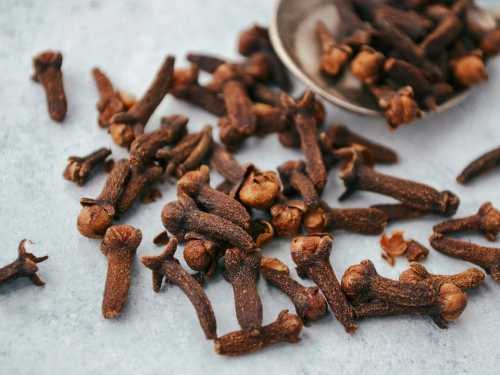
There are useful habits, there are harmful habits. And there are just strange ones. For example, chewing clove buds. No, not the one depicted on postcards for May 9, but just spices. Although such “chewing gum” has been unwaveringly popular in India for more than a hundred years, today interest in this practice is growing on other continents. Why? We'll figure it out below.
What are the benefits of chewing cloves?
The phrase “chewing cloves” itself sounds somewhat extravagant and not very appetizing. Unless, of course, you wash it down with mulled wine, sitting somewhere by the fireplace. Cloves have a rich aroma, and in small quantities in their pure form they have a pronounced, piquant taste. If you chew two or three buds a day, here's what will happen to your body in just a few weeks:
Cloves for digestion
Cloves, and especially their oil, are known to support a healthy digestive system. This is one reason why cloves and ginger are often used in Ayurvedic cooking to aid digestion. Chewing clove buds can help reduce digestive discomfort and bloating.
Morning sickness or “sea sickness” will go away
If you often suffer from morning sickness, clove chewing gum may help. Thanks to its positive effects on the digestive system and possible antiemetic properties, it can help relieve nausea. For the same reason, it would be a good idea to take some spices with you on your trip: it can help relieve the symptoms of seasickness.
However, it is better for pregnant women to refrain from taking this remedy, as high doses of some components of cloves can potentially affect uterine tone or have other unpredictable effects, and safety studies are limited.
Liver support with antioxidants
The liver plays a key role in detoxification and metabolism, and is also an important organ in the body's defense system against free radicals. The same ones that cause the body to age and can contribute to the development of various diseases. The antioxidant properties of clove oil, which fights free radicals, can contribute to the overall health of the body. And since experiments with pure oils can have unpleasant consequences in the form of poisoning and individual intolerance, it is safer to limit yourself to “chewing” from the spice, getting antioxidants in a milder form.
Cloves for oral health
Cloves have strong antiseptic properties. It is not without reason that their oil is even used in dentistry as a component of temporary fillings. Therefore, chewing cloves has a beneficial effect on the health of the gums and the oral cavity as a whole.
However, before including cloves in your daily diet or using them as a remedy, especially if you have a chronic illness, are taking other medications, or have special conditions (such as pregnancy), ALWAYS consult your doctor. Only a specialist can assess the individual risks and benefits.
Unfortunately, there is still no panacea in the world. That is why even quite useful cloves have their contraindications:
Cloves should not be used if you are bleeding.
You should not use cloves if you are concerned about bleeding of any nature or if you are taking anticoagulants, as the spice can potentially affect blood clotting or interact with drugs that thin it.
Low sugar and cloves are incompatible
The active components of cloves, contained in its oil and, accordingly, in the buds themselves, can affect blood sugar levels, contributing to their decrease. Therefore, with low sugar, cloves can aggravate hypoglycemia. With all the “consequences”, up to loss of consciousness.
Possible allergy
Individual reactions are sometimes unpredictable, so listen carefully to your body. And at the first symptoms of allergy, stop taking cloves.





